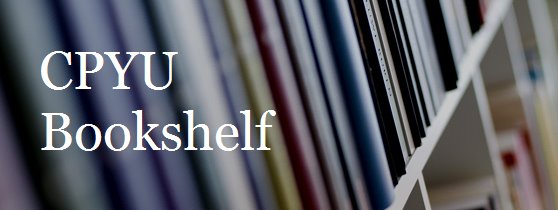 Current position/title: Senior editor, Christianity Today International; author, Culture Making: Recovering Our Creative Calling
Current position/title: Senior editor, Christianity Today International; author, Culture Making: Recovering Our Creative CallingCPYU: Have you always been a reader? If not, how did you become one?
AC: Yes, I was a reader from very early on. I had the great gift of parents who filled the house with music and books. In high school I had a series of extraordinary English teachers, who taught me how much there was to discover in literature. They introduced me to the kind of close, patient attention that the best writing deserves.
CPYU: What are your reading habits and practices?
AC: This may sound incompatible with my praise of close reading, but I'll always be grateful to my systematic theology professor Robert C. Neville for teaching me the basic techniques of speed reading. When I sit down for the first time with a new nonfiction book, I scan through the whole book in a matter of 5 minutes or so, and write down (usually on the title page) any phrases or ideas that I retained from that very quick perusal. I then go through the book again spending about 5 seconds per page (roughly 20 minutes for a mid-length book). It's amazing how much of the book you can learn to grasp in that second reading, and even more importantly you get a clear sense of the book's outline and argument. Then I can decide whether to read the book in the usual way—and if I do, my initial scans have prepared me to read much more interactively and intelligently than I would have otherwise.Last year I realized that my reading was shifting in an unhealthy direction toward journalism and periodicals and away from books. So for the past several months I've been returning much more intentionally to books, inspired partly by a grassroots effort by a few friends called the 5252 Project. We've all made a commitment to read at least one book per week in 2010, and I'm tracking and sharing my reading through a Twitter account called @ahc_is_reading. I won't have any trouble exceeding 52 books, but just paying attention and recording what I've read is keeping me focused on books, which really are still the most information-rich, substantive form of writing we have, even or especially in the age of endless information.
CPYU: Name 3 books that have been very influential in your life and one sentence that explains why.
CPYU: Name 3 books that have been very influential in your life and one sentence that explains why.
AC: Lesslie Newbigin, The Gospel in a Pluralist Society. Newbigin mapped our late-modern context, and the Christian response, with more depth and insight than anyone before or since.
Henri Nouwen, The Return of the Prodigal Son. This book is a model of close attention (to Rembrandt's painting) and a beautiful exposition of the heart of the gospel.
Robert Farrar Capon, The Supper of the Lamb. Capon's jubilant language not only rekindled my love of cooking but modeled how the best writing can be theological, poetic, and prophetic all at once.
CPYU: If you could meet any author, living or dead, who would it be and what questions would you ask him or her?
CPYU: If you could meet any author, living or dead, who would it be and what questions would you ask him or her?
AC: I think I would want to meet Homer. Of course we are not sure that Homer was a single author, but assuming he was, I would want to talk with him about war—and especially what he himself thought of Achilles and his pursuit of kleos or immortal fame. And I'd want to talk about home and marriage—and what he thought of Odysseus's protracted journey away from home (especially his dalliance with Circe, which seems longer than strictly necessary). We seem to get only indirect, sly hints of the poet's own view of these central characters, but what we sense is a deeply humane imagination at work in the telling of these highly stylized and tradition-bound epics.
CPYU: According to a recent study by the National Endowment of the Arts, very few young people are reading. Do you have any ideas on how to get young people to read?
CPYU: According to a recent study by the National Endowment of the Arts, very few young people are reading. Do you have any ideas on how to get young people to read?
AC: Clearly the most important thing is to model delight in reading. When the parents and the kids are tussling over the latest Harry Potter when it's released (as we did with the last several books in the series) the kids learn that reading matters not just to children but to grownups. But it's also important to create a "boredom-free" home, which means a family culture where it is taken for granted that we will create our own entertainment rather than relying on television, the Internet, and videogames for amusement. The great secret to not being bored is not having entertainment technologies readily at hand. So we didn't buy a television until our kids were in double digits, and all the central spaces in our home are intentionally designed to h elp foster reading, making music and art, and other forms of engaged creativity like cooking. That's good not just for the children but for the parents as well.
elp foster reading, making music and art, and other forms of engaged creativity like cooking. That's good not just for the children but for the parents as well.
 elp foster reading, making music and art, and other forms of engaged creativity like cooking. That's good not just for the children but for the parents as well.
elp foster reading, making music and art, and other forms of engaged creativity like cooking. That's good not just for the children but for the parents as well. 
















No comments:
Post a Comment